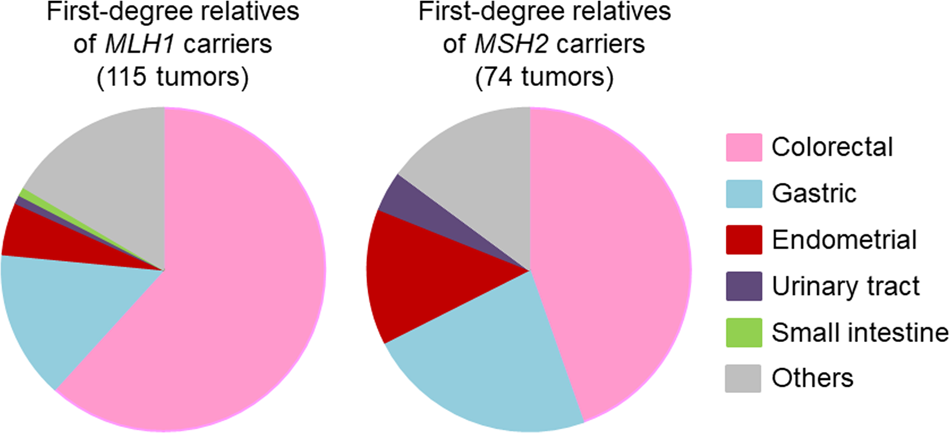Familial Adenomatous Polyposis (Lynch syndrome)


Familial Adenomatous Polyposis (Lynch syndrome) and Gastric Cancer Risk: Surveillance and Management
Familial Adenomatous Polyposis (Lynch syndrome), caused by pathogenic variants in DNA mismatch repair genes (MLH1, MSH2, MSH6, PMS2, or EPCAM), increases the risk of gastric cancer alongside colorectal and endometrial cancers. Below is a synthesis of gastric cancer risk, surveillance strategies, and evidence-based management in LS.
Gastric Cancer Risk in Lynch Syndrome
- Lifetime Risk:
- Tumor Characteristics:
Risk Stratification
| High-Risk Factors | Low-Risk Factors |
|---|---|
| MLH1 or MSH2 mutations13 | MSH6 or PMS2 mutations23 |
| Male sex3 | Female sex |
| First-degree relative with gastric cancer3 | No family history of gastric cancer |
| Age >50 years1 | Age <50 years |
Surveillance Recommendations
- Esophagogastroduodenoscopy (EGD):
- Guideline Variability:
- Effectiveness:
- Frequency:
- Every 1–3 years if high-risk features are present2.
Management and Outcomes
- Early Detection:
- Surgical resection: Standard for localized tumors.
- Chemotherapy: For advanced/metastatic cases (e.g., cisplatin, 5-FU)1.
- Prognosis:
- Survival: Improved with early-stage diagnosis (5-year survival >90% for stage I)1.
- Competing risks: Mortality from other LS-related cancers (e.g., colorectal) may offset gastric cancer risk1.
Challenges and Future Directions
- Cost-effectiveness: High number of negative EGDs (0.93% yield)2.
- Personalized Surveillance: Focus on MLH1/MSH2 carriers with family history3.
Conclusion
Familial Adenomatous Polyposis (Lynch syndrome) significantly elevates gastric cancer risk, particularly in MLH1/MSH2 carriers. While surveillance guidelines conflict, early EGD in high-risk subgroups improves detection and outcomes.
Consult with Our Team of Experts Now!
At DrStemCellsThailand (DRSCT)‘s Anti-Aging and Regenerative Medicine Center of Thailand, we emphasize comprehensive evaluations and personalized treatment plans of Cellular Therapy and Stem Cells for managing various health conditions. If you have questions about Neuromodulation Programs (NMP) or would like more information on our services, consult with our experts today!
Consult with Our Team of Experts Now!
References















